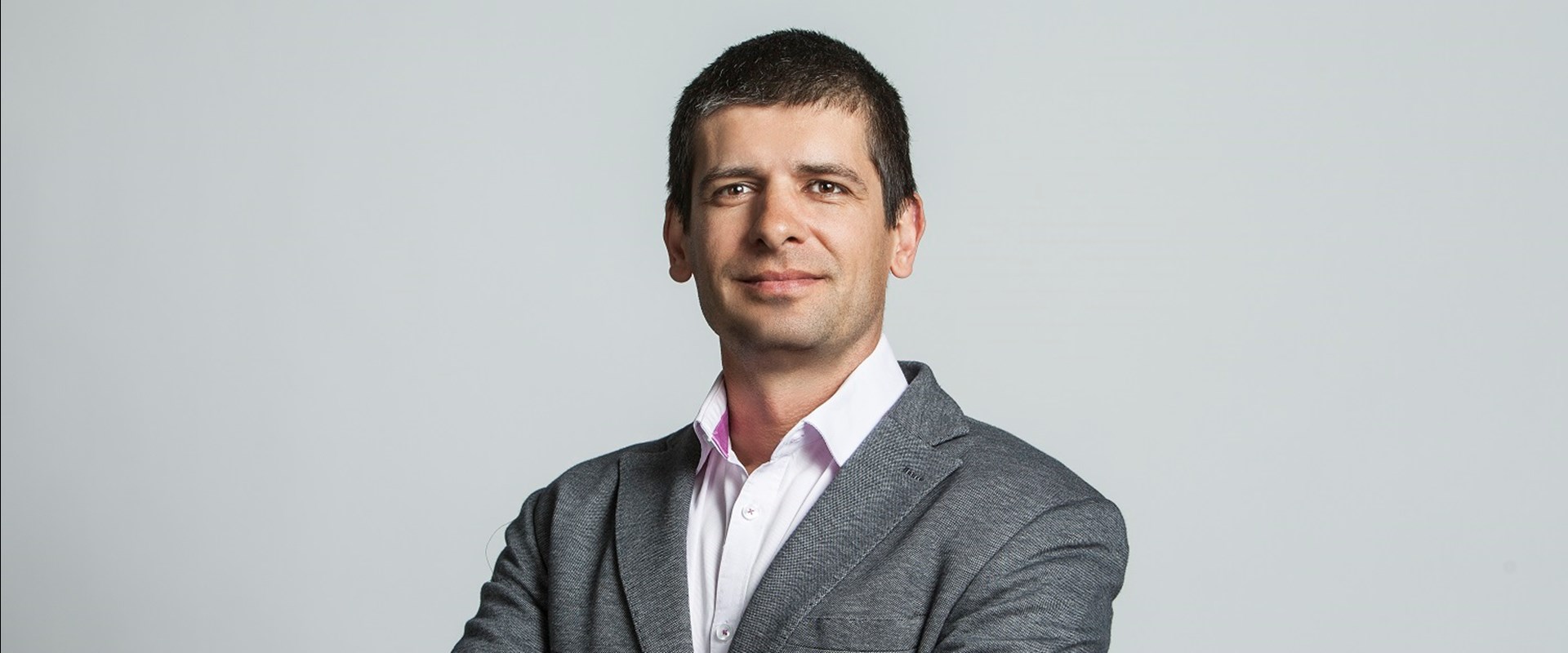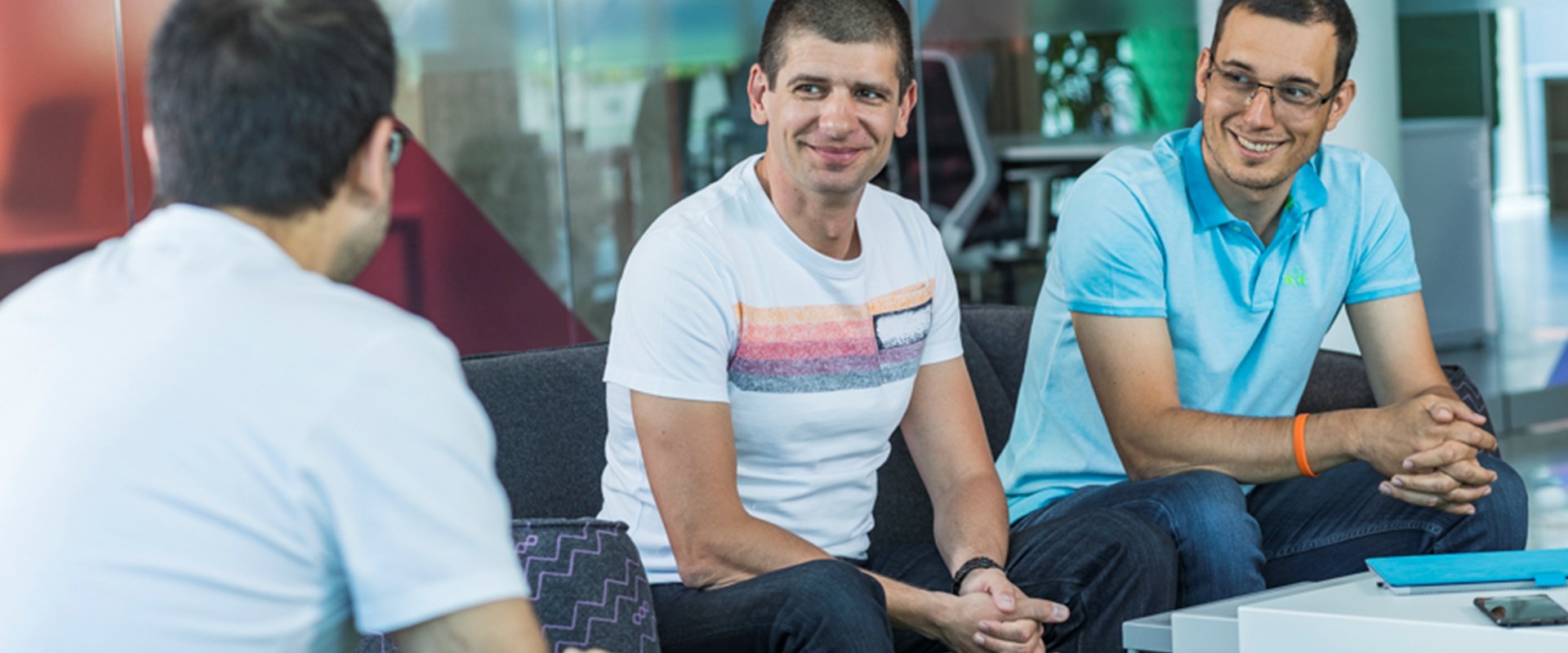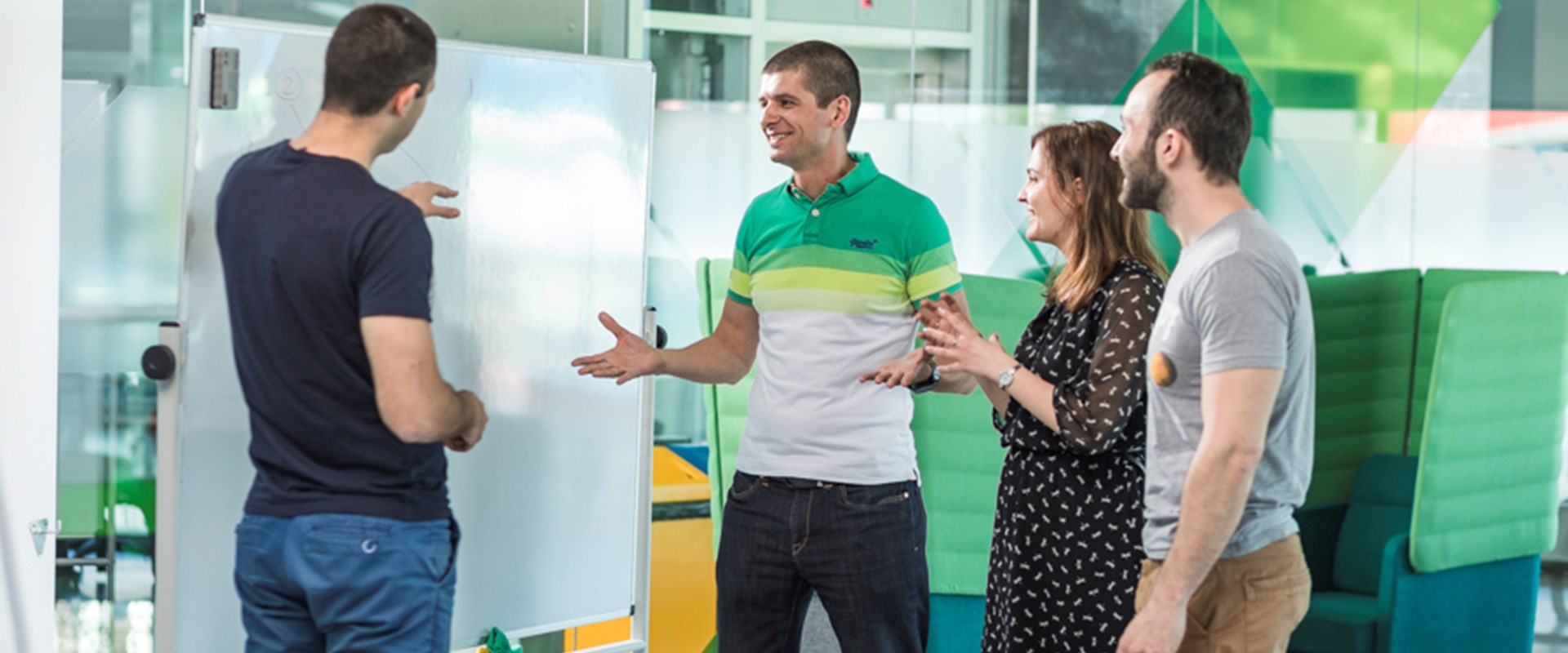
Svetozar Georgiev (‘00): 'If the balance is right, success and happiness will come for sure'
In 2014, Svetozar Georgiev (‘00), Vassil Terziev (‘01), Boyko Yaramov (‘00) and Hristo Kosev sold their company Telerik for $263 million to Progress Software, a business exit considered among the most successful ones in Bulgaria’s modern history. But their story does not stop there – the businessmen went on to establish two colossal projects: Telerik academy, which trains tomorrow’s digital experts, and Campus X, an ecosystem that supports tech companies’ growth and impact.
A recognizable name on Bulgaria’s business scene and a huge contributor to the country's change for the better, Svetozar says that for him, “the biggest reward in life is to help others succeed.” We reached out to the alumnus to hear more about Telerik’s tremendous success, the reasons why he is optimistic for Bulgaria’s future and the importance of togetherness, openness and integrity.
We could argue that the success of Telerik is unprecedented in the region. What helped you and the other founders – all recent university graduates – achieve that success?
Being pretty much fresh out-of-school people when we started Telerik, we were full of enthusiasm, energy and even a great deal of naïveness. Nothing seemed impossible. The mantras were “Screw it – let’s do it” and “Fake it till you make it.” The fear of failure was very low.
Those mantras can get you started, but won’t get you too far. So the real booster in confidence and ambition was success itself – every little win, every new customer, every testimonial, every award was a victory – properly shared and celebrated by the whole team.
The team itself and the culture that we managed to cultivate was the core strength of Telerik. Despite our neck-breaking growth, we managed to retain a family-like environment, in which people “deliver more than expected.” This actually became our motto and was manifested in every aspect of our work.
Are you hopeful that such success stories could become the norm in Bulgaria and how can we achieve that?
Achieving systematic success in the segments where Bulgaria has competitive advantage is the “crusade” of me and the other Telerik founders these days. We are seeing a phenomenal progress compared to the situation 10 years ago, or even five years ago. There is a whole cohort of companies that started two-four years ago, who are generating solid revenues and would become success stories/exits in the next two-three years. So, the cycle is gaining momentum – we just need some more time.
For systematic progress we need openness, togetherness and integrity:
- Togetherness – we are a small community and need to help each other without expecting anything in return immediately. Eventually “the higher tide will lift all boats;”
- Openness – people and companies should openly share experience, best practices, secret sauces. We are competing with the big world out there, not with the folks in our own city or country;
- Integrity – again, being a small community means that any unfair or improper act will come back and haunt you.
And probably one more ingredient: higher self-esteem. This is a bit of a cultural trait, but we need to be more confident and bold. That’s why I also challenge fellow founders with the question “what would you do if you were from Silicon Valley or London?” Miraculously, new, braver ideas come to mind immediately.
You and the other co-founders of Telerik launched Telerik Academy 10 years ago. What was your motivation to create the academy back then? What have you achieved with the academy in the past decade?
The initial motivation behind the creation of Telerik Academy was survival. Or rather – a method for fueling our rapid growth, which in turn was essential for survival.
The model itself, however, turned to be super beneficial for the whole IT ecosystem, not just Telerik. We were providing free IT education and hiring only a small percent of the graduates, while the rest were joining other IT companies.
Then we turned our attention to the “top of the funnel” and launched programs for kids and school students throughout Bulgaria.
Today, Telerik Academy operates as an independent company, serving the talent needs of the local tech ecosystem. Our initiatives for kids and students, on the other hand, are structured as a foundation as they are entirely non-profit in nature.
Looking back at the results achieved for those 10 years, we could not have been happier – 50,000+ people have been trained onsite or online. This and next year alone, 1000 new Telerik Academy graduates will enter the IT industry with a flying start. During the school year that just started two months ago, more than 2000 students in 100+ cohorts across 25 towns enrolled in our Telerik Academy School programs for kids. This success, coupled with the energy and dedication of the colleagues who are running the two Academies these days are what gives us enormous confidence for the years to come.
While already the largest IT hub in EE, Campus X is a more recent project of yours. How do you imagine the incubator in 10 years?
The evolution of Campus X in the humble 16 months of its existence is substantial. Our plan was to attract ambitious companies, which have great prospects for success and scale. The fact that Campus X is rather large (~1500 people capacity) gives those companies the opportunity to grow within the premises. And this is already happening – companies who started as 15-20 people are now 50+, with some approaching 100. What’s even better is that most of the companies here are product companies – so the level of complexity and sophistication of their business is significant. This is beneficial as the aggregated knowledge is shared among the tenants so that they all can become more competitive and successful on the international scene.
I envision that as the community grows, we will have an even better functioning knowledge-sharing and social activities, which will make the place more like home than office. I also hope that more places like Campus X will evolve in Sofia and throughout Bulgaria. This is already happening and will be a key catalyst for boosting the entrepreneurial ecosystem further.
What impact did AUBG have – and still has—on your career and personal development?
AUBG was life-changing in so may ways. Besides the deep fundamental academic knowledge, the greatest value for me is gaining confidence, independence, resourcefulness. Those are essential skills for every person, but especially for entrepreneurs.
The other aspect that makes AUBG special is the social connections – we are a small community and all AUBG-ers know and support each other – not only classmates for the respective cohort, but all alumni in general. In many ways we are like family, even a “mafia,” but in the good sense of the word.
Why did you decide to stay and work in Bulgaria?
That’s and easy question to answer. Three reasons:
- First, I value family and social connections (friends) more than material/financial benefits;
- Second, in an underdeveloped country there are more opportunities to succeed and make a difference;
- Last, Bulgaria is small but has it all in terms of nature. And whatever is missing here is a few hours away by car or plane.
Overall, I think Bulgaria offers a nice combination of factors. And people should always seek a nice combination, not individual benefits. For example:
- Silicon Valley is the center of the tech world, but is super competitive and super expensive;
- New York is diverse and vibrant, but is super busy and not really “human-scale;”
- Singapore is clean and shiny but is just 20km across;
- London is great too, but the weather sucks big time. There is no proper sea, and there are no mountains – a showstopper for me;
- Etc.
Bulgaria on the other hand has it all in decent amounts. It is also smaller and manageable, which is important. But you have to experience all those other locations before you can truly appreciate what we have here.
What would you advice recent graduates on building a fulfilling life and career?
Always keep a good balance – don’t get obsessed with work and success. Spend time with your family. Have fun. Do sports. I don’t believe in always-on, RedBull-powered 24/7 lifestyle. If the balance is right, success and happiness will come for sure.


